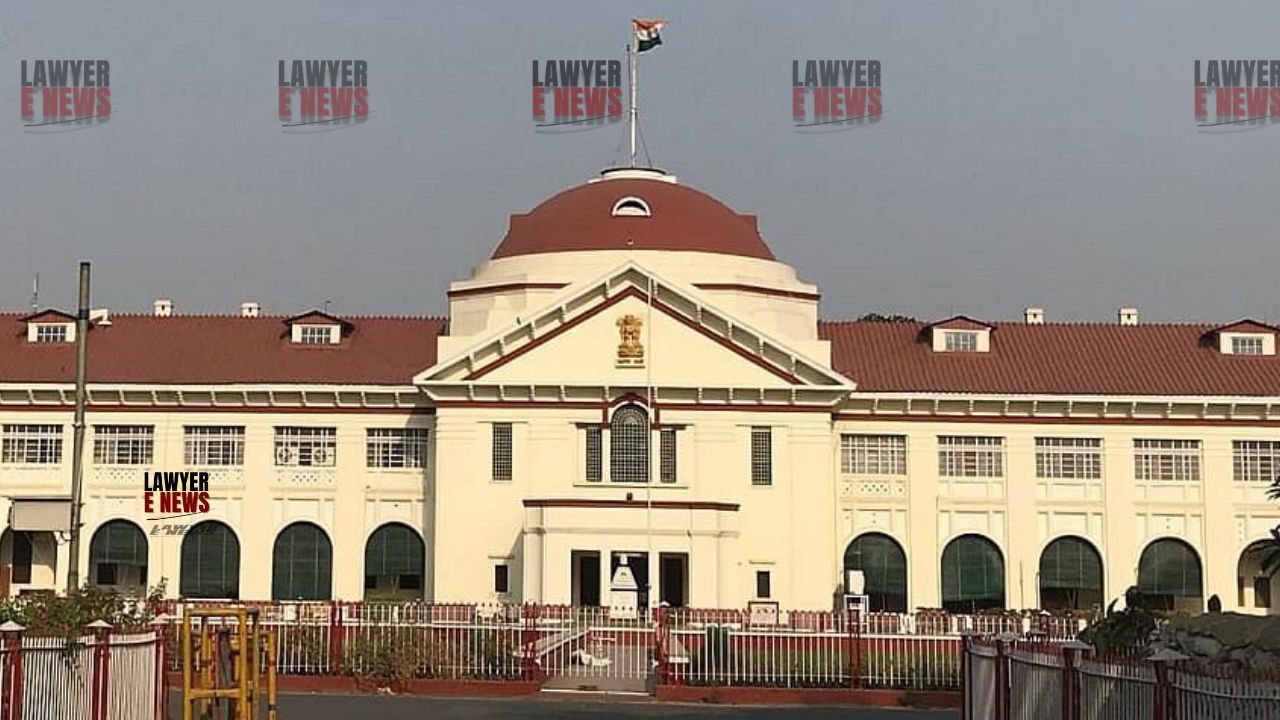-
by Admin
15 February 2026 5:35 AM



"When the victim was abducted, it became the duty of the abductors to explain how the victim died. Failing that, we must infer their guilt for the murder." – Justice Shailendra Singh, Patna High Court.
The Patna High Court recently upheld the conviction of two men, Niraj Yadav and Kishore Yadav, for the abduction and murder of Punit Kumar in a 2015 extortion case. The court reaffirmed the trial court’s decision to sentence the accused to life imprisonment, following the gruesome kidnapping and killing in Purnea, Bihar. The case, which stemmed from a dispute over extortion money, shocked the local community due to the brutal nature of the crime and the swift arrest of the perpetrators.
In August 2015, Punit Kumar and his uncle Amit Ranjan were riding a motorcycle when they were stopped by the appellants, Niraj Yadav and Kishore Yadav, near the house of the accused. The accused demanded "rangdari" (extortion money), and when the victim refused, he was forcefully abducted at gunpoint. Despite attempts by Ranjan to prevent the abduction, Kumar was shoved into a white Maruti Ritz car belonging to Niraj Yadav and driven away.
Within three hours of the abduction, the police apprehended the accused based on information from local police stations. Niraj Yadav's confession led the police to the location of Punit Kumar's dead body, found near a farm, bearing signs of severe assault.
Was there sufficient evidence to convict the accused based on the circumstances?
Could the accused be held liable for the murder, given the circumstantial nature of the evidence?
The appellants argued that the case was built on circumstantial evidence and that the prosecution failed to prove all necessary links in the chain of events. They further contended that the FIR was delayed and possibly tampered with to frame them.
The bench, comprising Justice Rajeev Ranjan Prasad and Justice Shailendra Singh, disagreed with the defense, stating that the prosecution's case was reliable and cohesive. The court noted that the testimonies of key witnesses, particularly the informant Amit Ranjan, were consistent and credible. The court observed:
Timeline and Evidence: The court rejected the defense's claim that the FIR was delayed, emphasizing that the FIR was lodged within two hours of the abduction. Furthermore, the swift recovery of the victim's body, based on the confession of Niraj Yadav, was crucial in linking the appellants to the murder.
Abduction and Murder Link: The court ruled that when an individual is abducted and found murdered shortly afterward, the abductors bear the burden of explaining how the victim died. Since the appellants failed to provide any plausible explanation for Punit Kumar’s death, the court drew the inference that they were responsible for his murder.
Recovery of the Body: Though the defense argued that the body was recovered from an open area accessible to all, the court found that the recovery location was secluded, making it improbable for anyone else to have disposed of the body there without the knowledge of the accused.
The court referenced key judgments, including Sharad Birdhichand Sarda v. State of Maharashtra and State of West Bengal v. Mir Mohammad Omar, to underscore the importance of circumstantial evidence in criminal trials. It upheld the principle that if a victim is last seen in the custody of the accused, and the victim is later found dead, the accused must explain the circumstances under which the death occurred.
The judgment serves as a stern reminder of the accountability abductors bear in cases where their victims are later found dead. It reinforces the principle that failure to explain the death of an abducted person, particularly when found shortly after the abduction, can lead to an inference of murder. This case is expected to influence future legal interpretations of similar cases involving abduction for ransom.
Date of Judgment: September 9, 2024
Niraj Yadav @ Niraj Kumar Chaudhri & Kishore Yadav @ Kishore Kumar Yadav vs. The State of Bihar
Advocates:
For the Appellants: Mr. Y.V. Giri, Sr. Advocate; Mr. Devashish Giri; Mr. Birendra Kumar Singh
For the State: Mr. Ajay Mishra, Additional Public Prosecutor.
